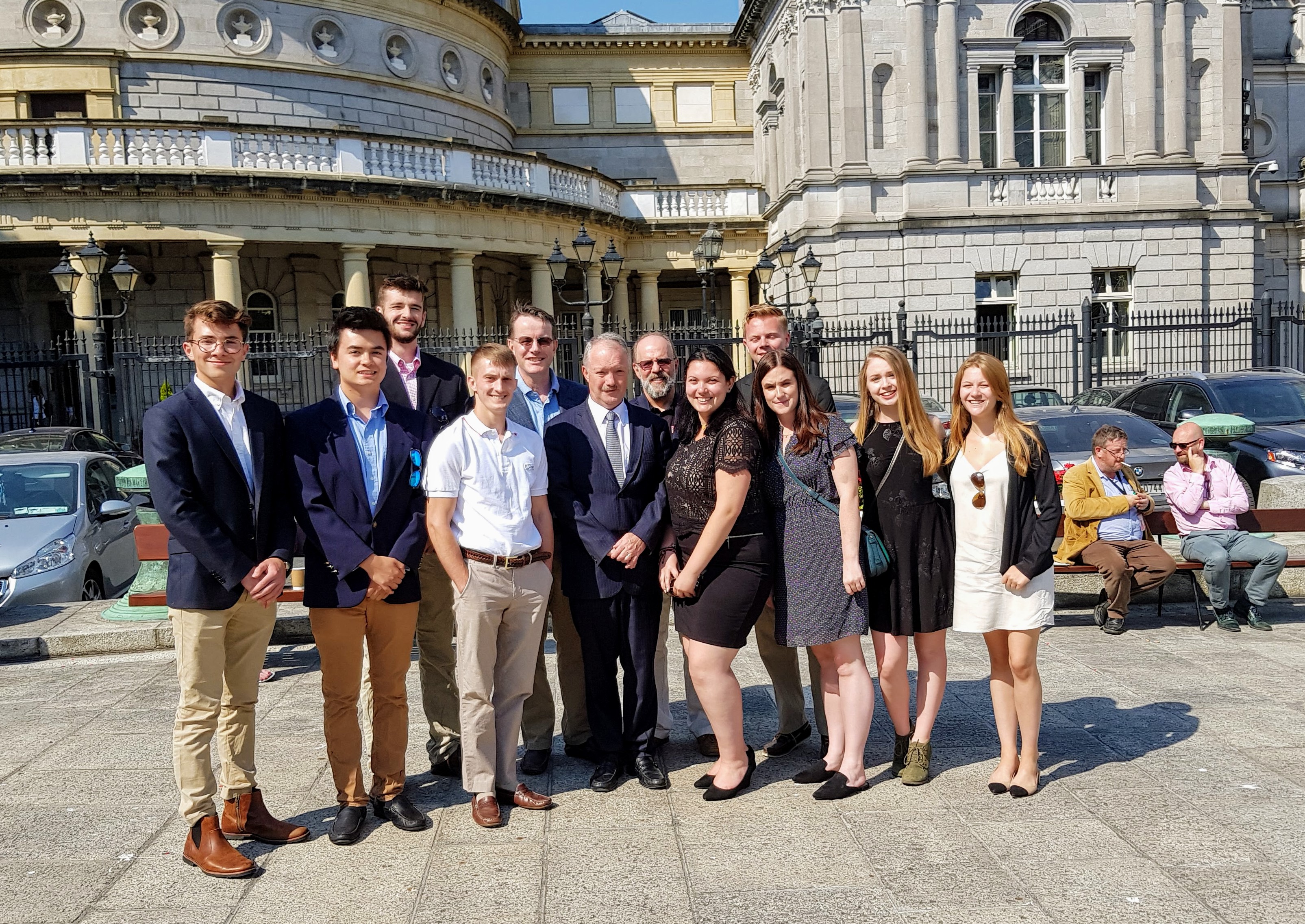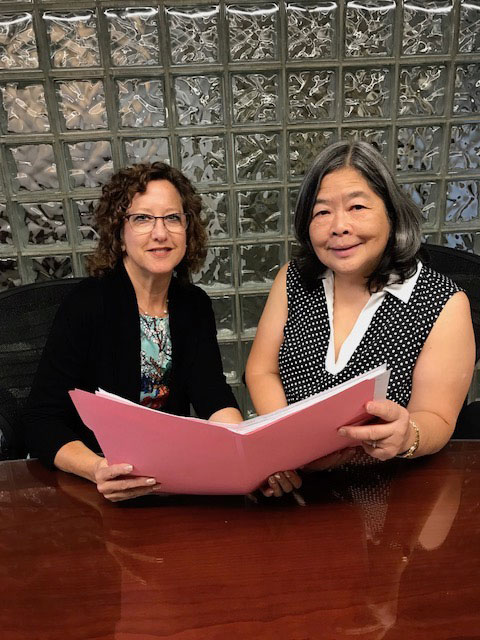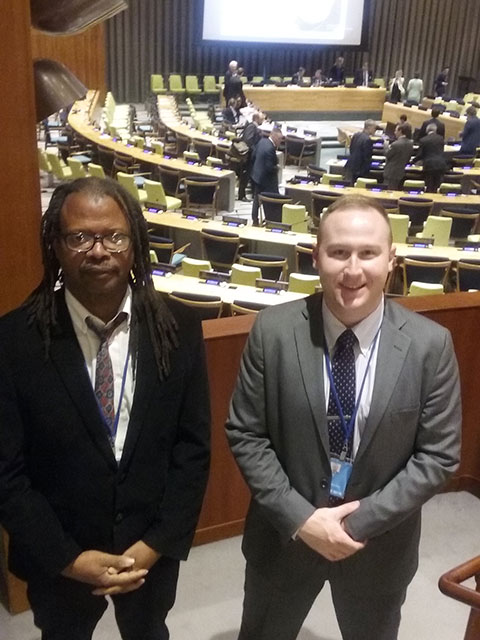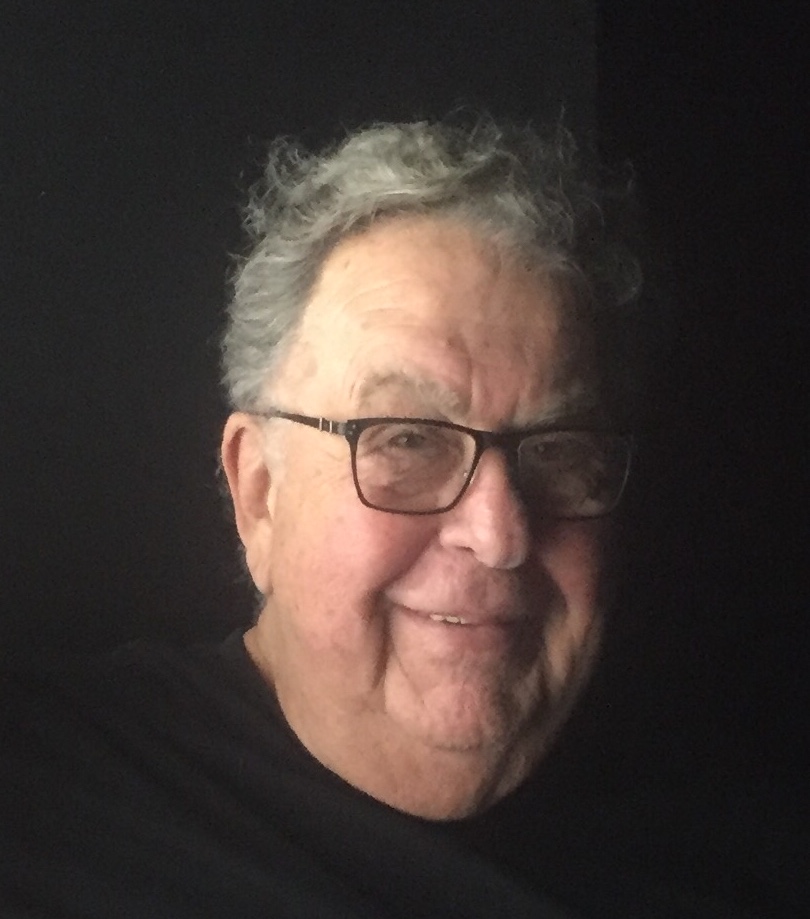-
About
First-Year Application Deadline
Don't miss your chance to apply to Marist and join the Red Fox Family!
• Early Decision II and Regular Decision: Sunday, Feb. 15About
-
Academics
First-Year Application Deadline
Don't miss your chance to apply to Marist and join the Red Fox Family!
• Early Decision II and Regular Decision: Sunday, Feb. 15Academics
-
Admission & Financial Aid
First-Year Application Deadline
Don't miss your chance to apply to Marist and join the Red Fox Family!
• Early Decision II and Regular Decision: Sunday, Feb. 15Admission & Financial Aid
-
Student Life
First-Year Application Deadline
Don't miss your chance to apply to Marist and join the Red Fox Family!
• Early Decision II and Regular Decision: Sunday, Feb. 15Student Life
- Athletics
A man working in front of the computer
School of Management
School of Management Newsletter: September 2018
MPA Options Expanded
Premiering this fall: Nonprofit Management and Analytics, two new concentrations in the SoM’s Master of Public Administration (MPA) degree program.
The two new emphases complement the existing MPA concentrations in Public Management, Ethical Leadership, and Healthcare Administration. Students concentrating in Nonprofit Management will learn how nonprofits differ from public and for-profit organizations in their mission, governance, funding and staffing; current issues facing the nonprofit sector also will be explored. The Analytics track examines critical issues related to managing data in organizations, including the concept of data as a resource, the data environment, the database approach, and the need for data modeling.
“By adding these concentrations, our program is both responding to a marketplace need and offering expanded career paths to professionals of all stripes,” said Associate Professor Jay Bainbridge, chair of the Department of Public and Nonprofit Administration. “Research shows job growth is expected to be greater than average in these areas. These additions also allow us to continue to improve the MPA program and keep the curriculum current with the needs of professionals in the field.”
Specifically designed for working professionals, the MPA program is accredited by NASPAA (the Network of Schools of Public Policy, Affairs, and Administration). Flexibility is key to the program’s success: Students can choose to study full or part-time, and can take advantage of both online and on-the-ground courses, which are offered in Poughkeepsie, Albany, and Queens, New York. Read more about the new concentrations and the MPA program.
Getting Their Irish Up

IN THE PHOTO. From left: August Unger ’21, Tim Hoang ’21, Brian Nolan ’19, James Pulver ’21, Brian Haughey, Sean Haughey (a Teachta Dála, or member of the Irish Parliament, and Brian’s first cousin), John Finnigan, Maritza Puzino ’20, Dan Confreda ’20, Emily Hoctor ’20, Hailey Guinn ’20, Tristen Cascio ’20. Pictured at Leinster House, home of Dail Eireann (the Irish Parliament).
After spending the program’s previous two summer sessions in Florence, Italy, ASPIRE organizers Prof. Brian Haughey and Prof. John Finnigan opted to take this year’s attendees to Dublin, Ireland for a change. “We decided to move to Dublin in part because we expected it to be cooler than Florence,” says Haughey. “But little did we know that our time there would coincide with the biggest heat wave in 40 years!”
ASPIRE (Accelerated Summer Program - International Residential Experience) is a six-week study-abroad program tailored to the needs of business students, especially those studying finance and accounting. Rigorous course requirements in these areas often make it difficult for students to fit a full semester abroad into their schedules. During their stay in Dublin, Haughey and Finnigan taught accelerated classes in Financial Management, Financial Statement Analysis, and Financial Literacy — a total of seven credits — to the nine students in the cohort.
Completing these credits during the summer can be a real plus, says Haughey. “A finance student, for example, can be finished with his or her finance concentration courses by the end of sophomore year, opening up room to take advanced electives —such as the Greystone Equity student-managed fund class, Structured Finance, and Derivatives and Risk Management — in their junior and senior years. This can be a decided advantage, relative to their peers, when seeking internships and full-time positions. A further benefit is the small class size and the ability to get to know the professors both in the classroom and informally in the evenings and on trips.”
Student reaction to the experience — which included overnight excursions to Belfast and Cong/Connemara, attendance at a Gaelic football match, and a tour of the Irish houses of Parliament — was overwhelmingly positive. Here is a selection of their comments:
The quality of the food surprised me the most. Everything was phenomenal! I would return to Ireland just for a bowl of steamed mussels or for one more scoop of ice cream, arguably the best in the world. – August Unger ’21
Dublin was the perfect place to study abroad. I fell head-over-heels in love with this beautiful and charming city. With all of the historical landmarks, traditional Irish pubs, and the primarily young population, there was always something fun to do. — Hailey Guinn ’20
Everything is better in Ireland, specifically the people, food, scenery, and history of this wonderful place. — James Pulver ’21
The Aspire program opened so many doors that I will forever be grateful for. It gave me independence, new experiences, and so much happiness. - Maritza Puzino ‘20
SOM Profs Create Programs for New and Part-Time Faculty

The TEAM (Teaching Enhancement at Marist) program is the brainchild of Assistant Professor of Economics Della Lee Sue (at right). “I wanted to do something different that would benefit the School of Management and reach out to the part-time faculty,” she says. The voluntary program invites part-time instructors to participate in activities — formal and informal meetings, social events, and forums — designed to enhance their Marist experience while maintaining accreditation standards.
Last fall, senior faculty members visited classes taught by part-timers. “The intention was to be collegial and helpful,” says Sue. “Besides providing supportive feedback, the class visits were an opportunity [for part-time faculty] to meet other people.” The spring theme was self-reflection: part-timers were encouraged to complete a teaching self-assessment. “The objective was to encourage the instructors to think about what they do in the classroom, how they teach, and how they relate to their students,” says Sue. “They were encouraged to meet with somebody to discuss aspects of their teaching and explore options.”
In April, Sue conducted a college-wide workshop for part-time teachers entitled “Brainstorming the Classroom Experience.” Working in groups of five people, the 50 attendees analyzed articles on teaching that were published in the Chronicle of Higher Education. “Each group read one of the articles, prepared flipcharts of their thoughts and reactions, and presented their take-away to the entire assembly,” says Sue.
“I am pleased to say that the class visits and especially the CTE Workshop were very successful,” Sue says, noting that several participants commented on the “great interactive opportunity” and “useful info” that the programs offered.
“As the School of Management grows, we have more new faculty, all needing guidance in Marist and SOM procedures and expectations,” says Associate Professor of Marketing Elizabeth Purinton-Johnson, chair of the Department of Organization and the Environment and creator of the Junior Faculty Development Series. “When I heard of Della’s project for fostering community, engagement, and excellence among adjuncts, I immediately and shamelessly ‘borrowed’ the idea for junior faculty. It only makes sense to encourage a collegial and engaged faculty through support and guidance.”
The structure of the program revolves around three to four meetings for junior faculty (defined last year as pre-tenure; going forward this will be new to mid-tenure faculty, says Purinton-Johnson). Each session focuses on a different aspect of life at the college. Last year, the first meeting discussed expectations, rules and policies; the second explained the peer review process. Held in the spring, the third get-together “centered around self-reflection, so that faculty could prepare for their annual activity report and contemplate their own progress,” says the professor.
“We received a lot of positive feedback from faculty,” Purinton-Johnson continues. “They seemed to feel more prepared for the road ahead, and I think they also felt more supported.”
Faculty Focus

On June 26, SoM Prof. Vernon Murray (at left) and 1st Lt. Kyle Davis ’13, executive officer for disaster preparedness and planning for the New York National Guard, attended the biometrics side meeting of the United Nations Global Counter-Terrorism Meeting. Murray and Davis volunteer with Fang Protective Services, a nonprofit that instructs humanitarian aid workers on safety issues. The organization holds consultative status in the U.N.’s Economic and Social Council division.
The School of Management is pleased to welcome four new faculty members to campus this month:
- Faezeh Amirkamali — assistant professor of management
- Feiqi (Freddy) Huang — assistant professor of accounting
- Halimin Herjanto — assistant professor of marketing
- Daniella Medina — visiting lecturer in economics
Alumni Profile: William Moran ’63

After a long and distinguished career in the banking industry, Moran is now officially retired — although he sits on numerous public and private boards. He is chairman of the Audit Committee of BGC Partners, a member of the Cantor Fitzgerald family of companies. He is also the longest serving member of the SOM’s Board of Advisers, having joined the group when it was founded. “In spite of making some interesting career choices,” he says his success is due to the solid education and moral values Marist provided. “The brothers instilled an excitement about learning that has served me well during 50-plus years of challenging global assignments. The values I learned at Marist — including humility, honor, integrity, concern for others and the importance of giving back — have served me well in a diverse world.”
Q: Tell us about your time at Marist.
A: I attended Marist before it was a college. There was nothing here — and I mean nothing. The public face of the college was Donnelly Hall, the Greystone Building (which housed our library of about 1,000 books), the Gate House and the Chapel.
I was offered a full academic scholarship and employment on campus, which looked like a good deal for a street kid from Astoria. But the real reason I came to Marist was that it felt right. Could that be intuition or God’s hand?
As I said, there was nothing here: no yearbook, no newspaper, no crew team, no college mascot. We had two choices: do nothing, or do something. Collectively, we decided to do something. Since there were no followers, you had to become a leader without followers until enrollment grew. After being a leader, you can’t go back to being a follower. So that’s what I kept doing. And as a result, my life was changed forever.
Someone once asked me what made me successful. At Marist, we never thought about being successful, we only knew we would not fail in doing what needed to be done. The origin of almost all of the activities that are now part of campus life can be traced back to the guys of 1963. The only thing we can’t take credit for are the coeds. We weren’t allowed to have women visit us on campus.
Marist prepared me academically to be successful in life if I chose to be. The academics were rigorous — just 16-17 students per class, so there was no place to hide. I studied hard in order to maintain my scholarship. During evening study periods, we had to sit at our desks for two hours with the door open for inspection. I earned my bachelor’s degree, cum laude, with a major in English; I also dabbled in history and philosophy.
Being a dorm counselor taught me to be responsible and to help my colleagues. Being a member of the crew team showed me the value of hard work, total commitment and teamwork. There are no stars on a crew team: the boat wins or it loses. These attributes were key in successfully managing the global General Auditing Department and my ability to contribute to the overall success of JPMorgan Chase.
Another important ingredient was the close interaction with an outstanding faculty, who were virtually all Ph.Ds. We lived together, drank together and had great discussions on campus.
I received a true liberal arts education; learned important leadership skills; made lasting relationships with a fabulous group of professors who prepared me to succeed in an ever-changing world. I was in the right place at the right time.
Q: How did your career begin?
A: I worked as a teacher at Our Lady of Lourdes High School in Poughkeepsie in ’63-’64, on the girls side. Although I liked teaching, I didn’t love it — it wasn’t my thing. I worked at IBM from ’64-’65, but I was just killing time. I couldn’t get a real job; they said I didn’t have any workplace skills due to my liberal arts education.
After my experience at IBM, I looked at my financial prospects, and it seemed highly probable that I was going back to Astoria to live with Mom and Dad. It seems I needed a trade. Plumbing was a possibility — but instead in 1966 I earned my MBA in accounting and finance from Columbia University’s business school. I then apprenticed at Peat, Marwick, Mitchell & Company [now known as KPMG] public accountants. I stayed there until 1975, moving through the auditing ranks, achieving the title of senior manager — and acquiring a CPA along the way.
I loved auditing. There was lots of problem-solving and new clients and staff every few months. My derided “liberal arts education” was perfect in this constantly changing environment: my writing and interpersonal skills made me a standout for dealing with written assignments and difficult clients. And my experience with crew helped me build and maintain strong work teams. But I stopped loving public accounting — it was interfering with my family life — so I moved on.
Q: Where was your next stop?
A: In 1975, I joined the internal audit department of the Chase Manhattan Bank, with no intention of staying in internal auditing; my expected tenure was two years at most. That expectation was totally wrong. In 2005, 30 exciting years later, I retired from the same department of what is now the JPMorgan Chase Bank. When I retired, I was the executive vice-president/general auditor and reported to the chairman of the corporation. Having been selected general auditor after each of several mergers, I was able to build the ultimate audit team. Columbia had given me the tools, but Marist gave me the skills to make these opportunities work.
Along the way, I married a classmate from Columbia. We have two daughters, who are now married and have children of their own — two girls and a boy. One family lives in London, the other in Tampa, Florida.
It was 30 quick years. Take the right job, and you will never work a day in your life.
Q: Some people have difficulty with retirement. Is that the case with you?
A: No! After spending 13 years with no Sunday nights — always having to work — I am fully with the retirement thing. I live in Manhattan. I take full advantage of the theatre, museums, concerts and lectures. Of course, the best thing about retirement is having the time to spend with the grandkids and to travel extensively.
Giving back is one of my core values. I’ve stayed connected to Marist because my time here made a major difference in my career success, and I need to give back both time and money. I’m amazed each time I visit to see how much has been accomplished since 1963. Kudos to Dennis Murray and the leaders of the past, and bravo to David Yellen and his team of the future.
